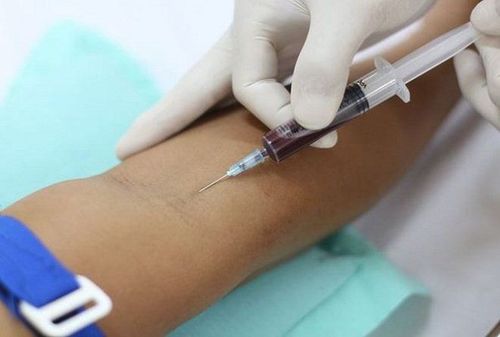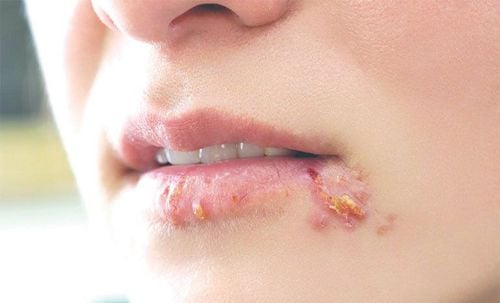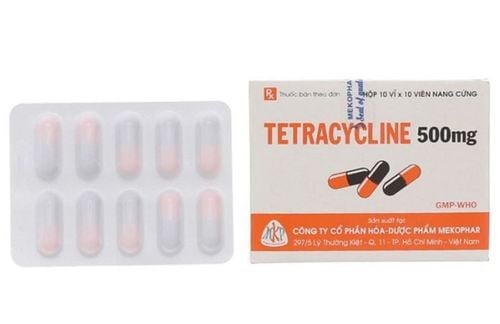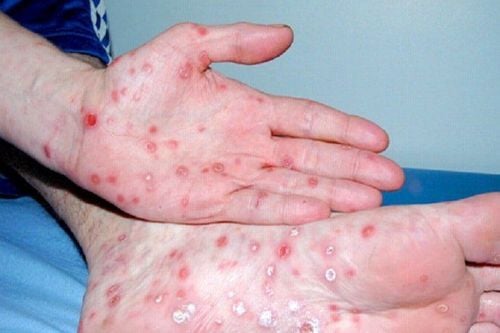This is an automatically translated article.
The article is professionally consulted by Master, Doctor Tran Thi Vuong - Doctor of Microbiology - Laboratory Department - Vinmec Hai Phong International General HospitalSyphilis test is a test performed to screen and diagnose syphilis caused by the bacterium Treponema pallidum. It is a dangerous infectious disease that is transmitted sexually, through blood, or from mother to child.
1. Syphilis overview and Syphilis testing
Syphilis (or Syphilis) is the name for a sexually transmitted disease caused by the spirochete Treponema pallidum. In addition to being transmitted primarily through sexual contact, the route of transmission of syphilis can also be from mother to child or through blood.This is one of the dangerous diseases, because no matter how it is transmitted, in the early stages, there are often no symptoms or symptoms that are easily confused with other skin diseases, so people The disease is often subjective when seeing signs of syphilis. If the disease progresses to the final stage, it will cause extremely dangerous effects on the nervous system, heart and body of the patient.
To be able to diagnose syphilis, when a patient has unusual symptoms or suspects that he or she may have the disease, he or she needs to see a specialist doctor to receive examination and test. diagnosis of syphilis. Tests to diagnose syphilis are generally divided into two categories: screening tests by nonspecific reactions and tests for specific syphilis. It is important to note that the diagnosis of syphilis requires a close combination of laboratory results with physical examination, sexual history, and risk factors.
SEE ALSO: After 2 years of treatment for syphilis, RPR negative, TPPA positive, has the disease been cured?
2. Syphilis screening tests (non-specific test)
Syphilis screening tests are nonspecific serological tests, including: RPR test, VDRL test. Specifically:
2.1. RPR (Rapid Plasma Reagin) test This is a non-specific reaction, using an antigen that is a lipoid extracted from bovine heart, but has a structure similar to the lipoid of syphilis spirochetes. For the same reason, only reagin was detected in the patient's serum. Reagin is formed by stimulation of the lipoid of spirochetes and against this lipoid.
If the result is negative, it means you do not have the disease. In addition, RPR is also used to monitor treatment. After RPR treatment, a negative result means that the patient has recovered from the disease. Some cases of RPR give false negative results such as early syphilis I, or late syphilis. A positive RPR means that the patient is infected with syphilis, or has a history of syphilis. Some cases of RPR give false positive results. It should be noted that because RPR is a non-specific reaction, it is only a screening test, so when a positive result is obtained, the diagnosis should be confirmed with a specific response.
MORE: Is syphilis curable?

Non-specific tests have advantages, fast, cheap, quantifiable, can be used to monitor treatment or disease recurrence.
Summary of non-specific testing purposes:
Screening Diagnose patients Positive in 50% of syphilis patients I Positive ~100% in syphilis II Late syphilis: possible (-) Follow-up Treatment: titres gradually decrease if treatment is successful.
3. Specific test: TPHA or TPPA
TPHA (Treponema pallidum Haemagglutination) is a specific test to detect anti-syphilis antibodies in the patient's serum.TPHA: is a passive red blood cell agglutination reaction, using antigens from syphilis spirochetes absorbed on the surface of red blood cells.
TPPA (Treponema pallidum Particle Agglutination): particle agglutination reaction.
Technical characteristics:
Specific for T. pallidum Detect IgM & IgG antibodies against T. pallidum antigen by agglutination technique (TPHA & TPPA). Remain positive after correct treatment Sensitivity and specificity higher than nonspecific tests More expensive and time consuming than nonspecific tests Intent TPHA or TPPA specific testing:
Confirmed after testing nonspecific positive Blood transfusion screening Diagnose patients with syphilis III when the test is nonspecific (-) Not used to monitor treatment or evaluate reinfection.
4. Other tests for syphilis
4.1 Direct examination Using black background microscopy and staining Fontana - Tribondeau: Applied in the period of syphilis I, also rarely used at present.4.2 Other tests Multiplex PCR: not yet widely used ELISA TPI, FTA... MORE: Does PCR test have anything to do with RPR or TPHA testing?
5. When should a Syphilis test be performed?
If you see some of the following symptoms in your body, you should go to a reputable facility to get tested for Syphilis:About 1 to 3 months after syphilis infection, the patient's body will begin to appear The sores are oval or round, red, hard to the touch, and do not cause pain or itching. The location of the sores is usually on the genitals, around the anus, rectum, oropharynx. When the sores gradually fade and disappear, only about 4 to 10 weeks will continue to enter the patient's bloodstream and quickly spread throughout the body. At this time, the patient's body will show signs of mucosal damage, in the middle of the red spots, there is an ulcer or erosion phenomenon.
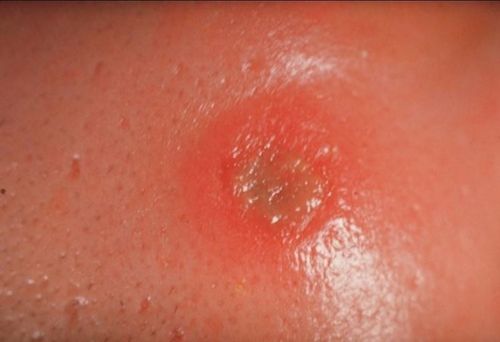
Currently, Vinmec International General Hospital offers you a Social Disease Screening Package that can help early detection and effective treatment of syphilis as well as other social diseases. When registering for the Social Disease Screening Package at Vinmec, customers will receive a specialist Dermatology examination and carry out screening tests. The tests at Vinmec and the examination are performed by specialists with rich expertise and experience in the treatment of dangerous social diseases. In addition, patients will experience world-class medical examination and treatment services with the most modern infrastructure system.
Please dial HOTLINE for more information or register for an appointment HERE. Download MyVinmec app to make appointments faster and to manage your bookings easily.





